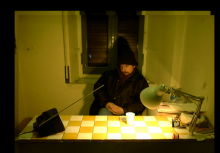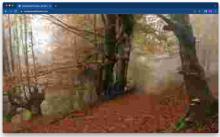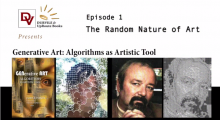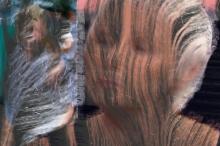Dreamlines
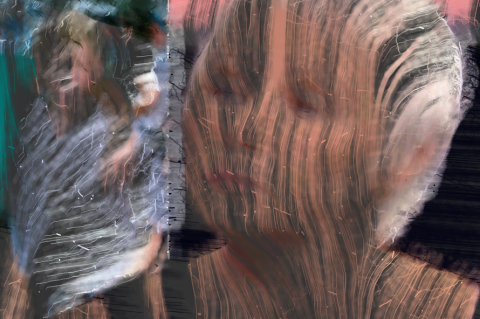
Who is dreaming? The user, or the Internet itself? In a certain way, both. "Dreamlines is a non-linear, interactive visual experience. The user enters one or more words that define the subject of a dream he would like to dream. The system looks in the Web for images related to those words, and takes them as input to generate an ambiguous painting, in perpetual change, where elements fuse into one another, in a process analogous to memory and free association.
Launch project
The system has been developed in Java and PHP. First, a PHP script makes a Google image search of the words entered by the user. Then, the Java applet retrieves the images one by one, and uses them as input to generate an ever-changing drawing. The pictures are never actually shown. The drawing itself is produced by 1500 autonomous particles in perpetual movement. The last image loaded serves as a sort of virtual terrain for them. The direction and speed of each particle is given, at each step, by the color values of the pixel they are stepping on. Different sets of formulas translate the hue, saturation and brightness of the pixel in angle and velocity values for the particle. The path of each particle is traced to the screen, and this forms the output seen by the user. Thus, the work is at the same time a study on population dynamics, or on the emergent behavior of a multitude of very simple autonomous agents.
The program generates a personal moving picture, unique, unpredictable, and forever gone when it is finished, just like dreams. But that dream is made out of pieces taken form the subconscious of the whole net, gathered by some words of the user and the obscure logic of searching algorithms. The subject of this work is, many times, multiplicity. That of the particles in endless movement, that of the vast contents of the Internet, that of the users and the dreams they wish to dream. All this multiplicities get together on the verge of chaos, on a process that mixes randomness and strict but complex logics, very much alike the processes that take place in our heads. Even when we rest. (from the website)


